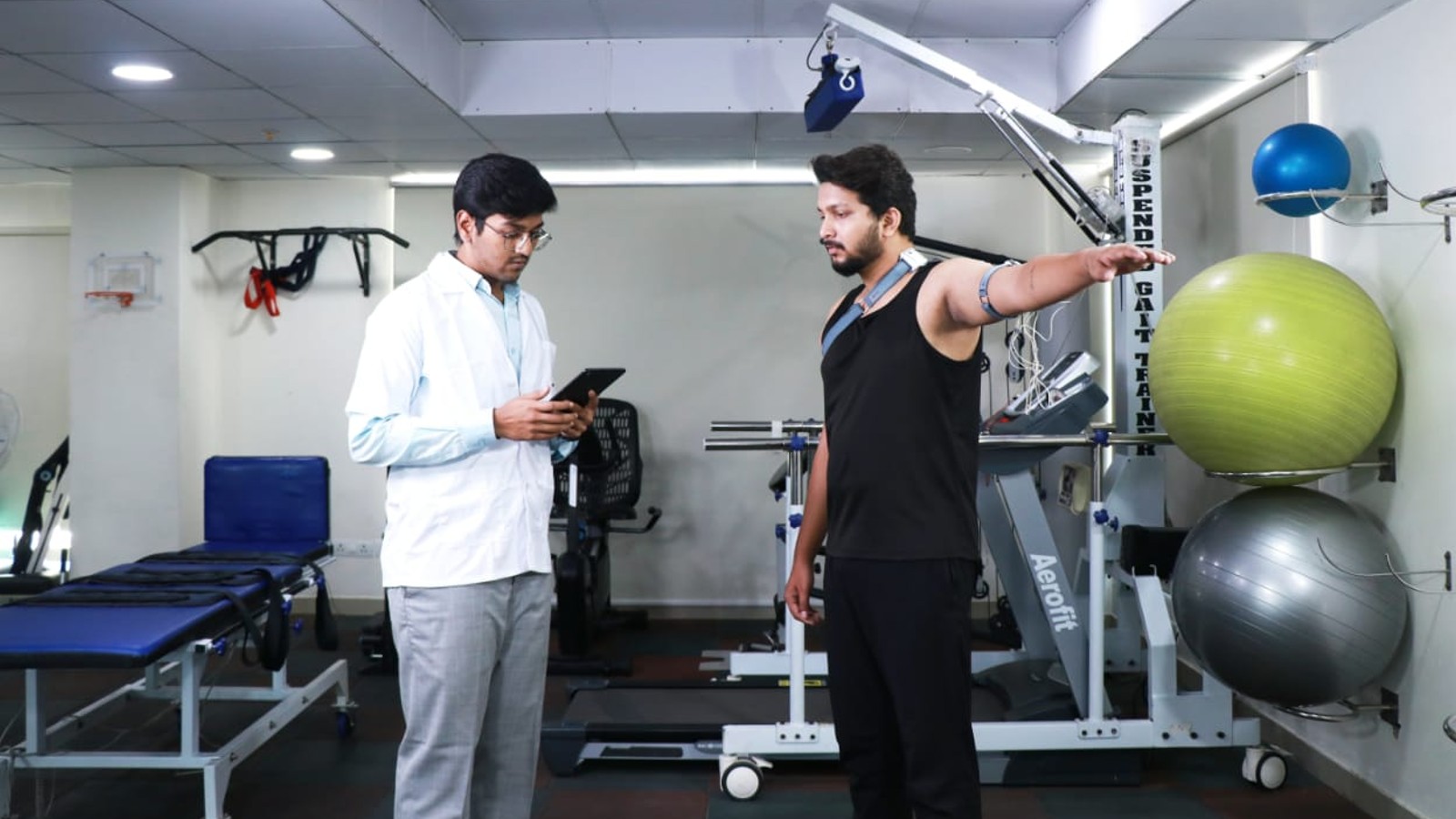“There’s always scientific evidence based on which a clinical diagnosis is made. Unfortunately, in physiotherapy, it’s all subjective.” Suresh Susurla, co-founder and CEO of Startoon Labs which has just developed Pheezee, the world’s smallest and lightest Electromyography (EMG) machine, underlines the problem he is trying to fix with his product. His Hyderabad-based company was started along with wife, Mythreyi, whom he met at IIT-Madras.
“When we went to the physiotherapy departments in hospitals, we saw the physiotherapist and the patients interacting with each other; there was a lot of verbal communication. But if it is a neurological patient, they may be morally down, their mood low.
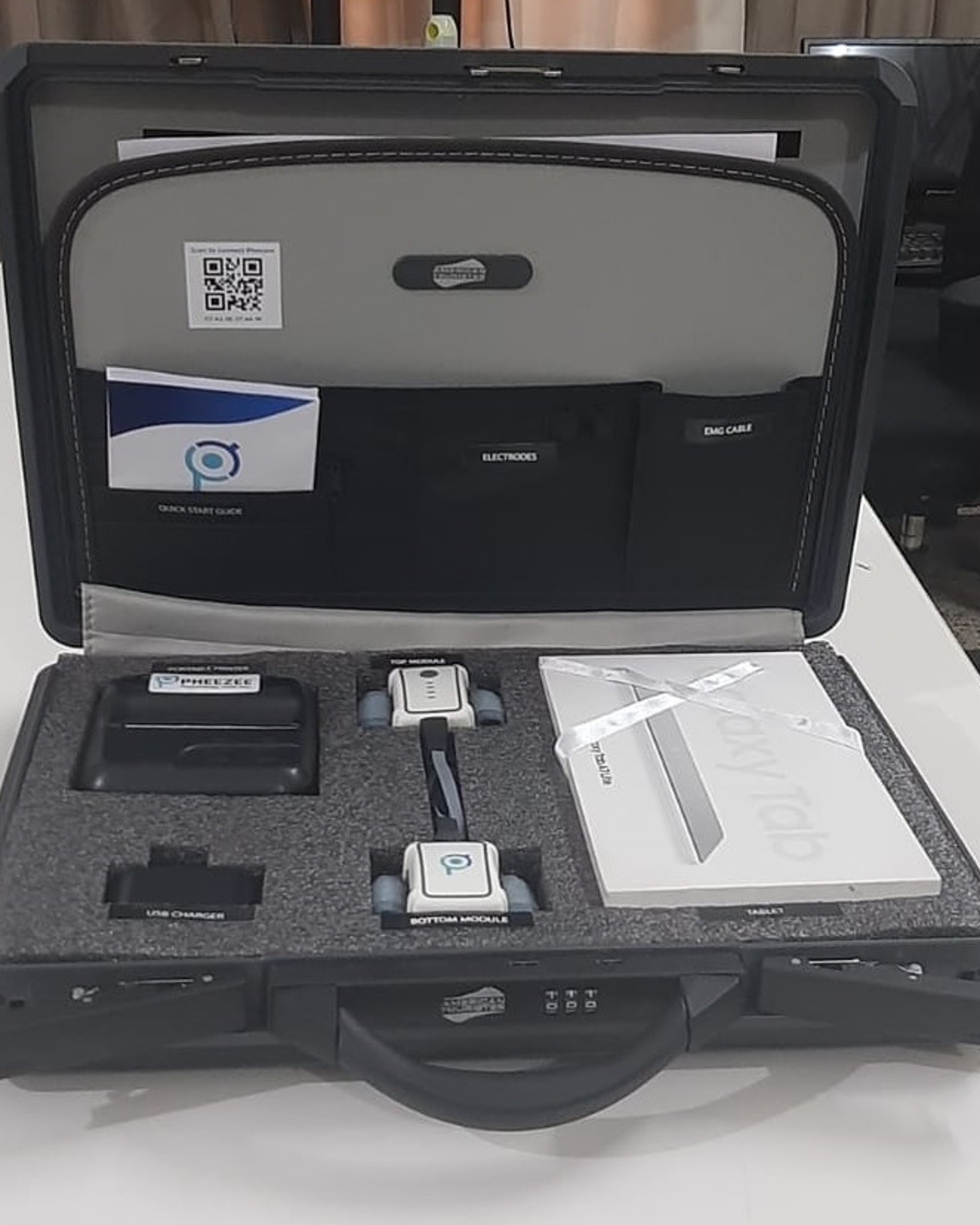
They are not cognitively well, and unfortunately, when a physician or a clinician asks a patient, the treatment protocol is dependent on the patient’s answers, which is again dependent on the mood of the patient. It’s a sad situation,” Susurla tells indianexpress.com in an interview.
Susurla says that unlike cardiology, where you can look at the ECG to make a clinical decision and get the scientific picture of the muscles of the heart, physiotherapy never had equivalent medical equipment to quantify the status of the patient, especially for joint health. For Susurla and his team, the idea behind developing Pheezee was to “literally invent a stethoscope for every physiotherapist on this planet.”
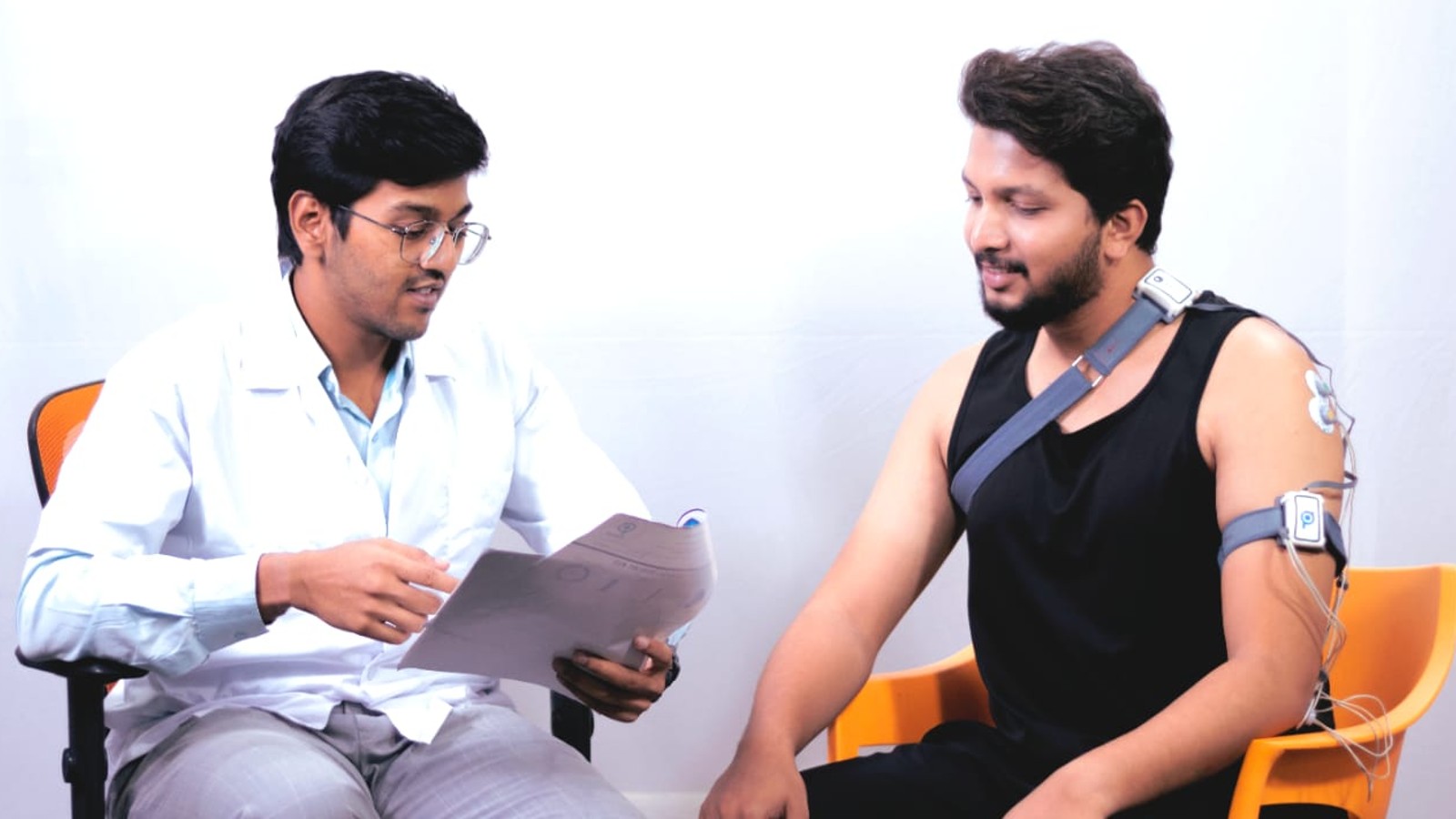
“We identified this gap.” At times, even a patient is not convinced about the treatment that the physiotherapist is giving. “It’s all about feeling, and in clinical practice, feeling is not the thing,” he reasons why a device like Pheezee was needed.

Physical therapy or physiotherapy is recommended when someone has encountered a sports injury, has a frozen shoulder, or has undergone joint surgery. Physiotherapy helps cure ailments when there is limited or no mobility in the joints, both in the upper and lower extremities. A patient is typically prescribed to undertake “precise exercises” during the course of physiotherapy, which can last weeks or months, to increase the mobility of the joint and to enhance the strength of that particular limb.
“We have invented this product based on a real need.” Designed and developed in India, Pheezee is a wearable medical device that measures the movement of the joint and the health of the muscle responsible for a particular movement.
“Movement is all about muscle contraction. The movement happens when the muscle contracts, and muscle contraction is electrical activity.” According to Susurla, Pheezee captures the movement with a sensitivity of one degree, which is one of the highest accuracies in the world, and it also measures surface Electromyography (EMG), a test that analyses nerve and muscle electrical activity.
“These are the two important signals recaptured by Pheezee, and these signals are vital for any joint health. We then perform a lot of signal processing and analytics, and based on that, a report is generated after every session,” he adds.
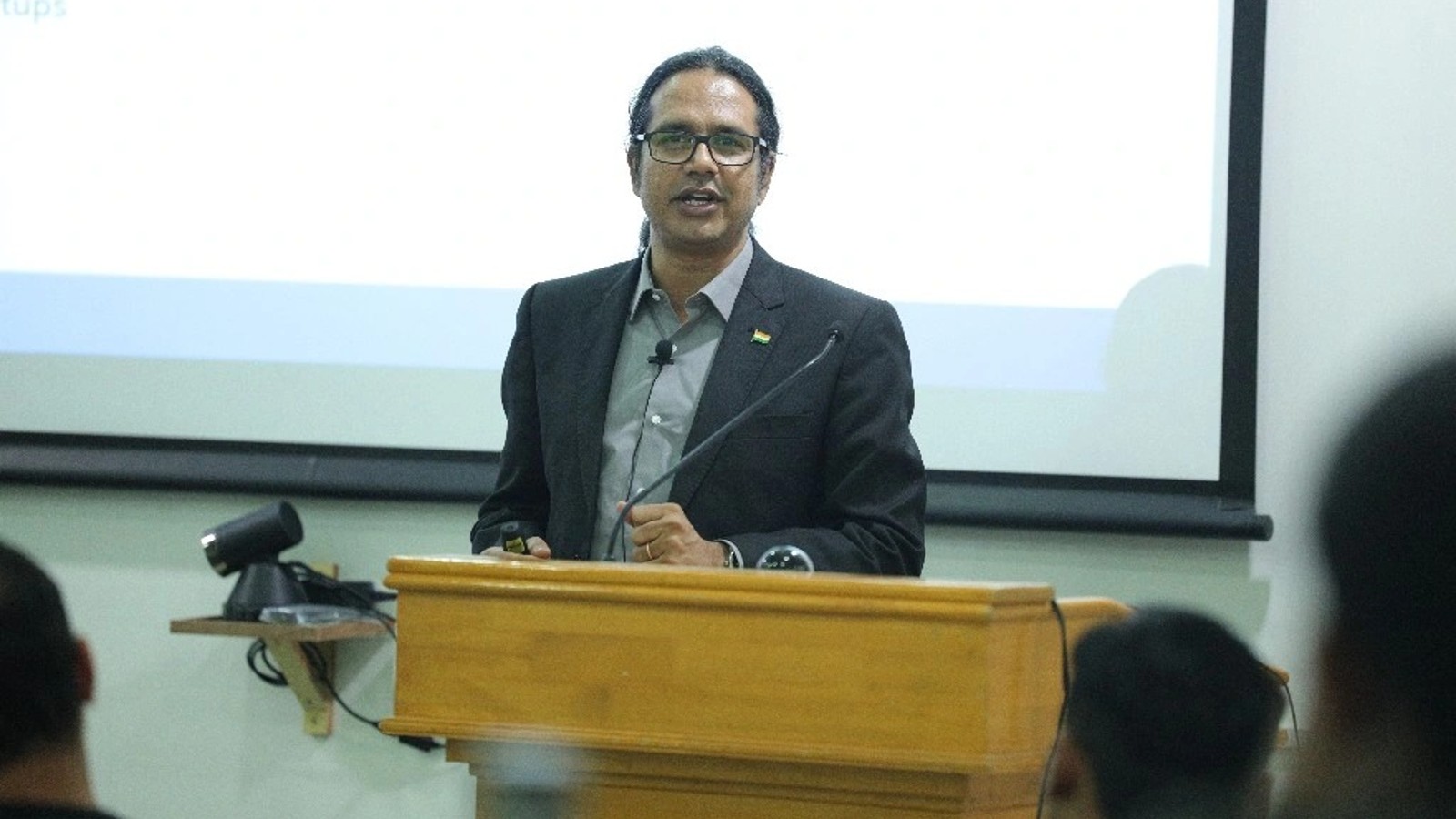
The 100-gram device comes with two wearable modules that have a Velcro strap, which needs to be worn above and below the joint. Susurla says there are big imported machines that can measure signals from muscles, but nothing comes close to Pheezee due to its wearable nature and the technology and intelligence that goes into making this device, combined with the ability to get insights on a particular muscle or joint, based on which a physiotherapist can derive results.
“A lot of electronics and sensors are built into these two modules,” he says. Phezzee sends the data wirelessly to a smartphone or tablet via Bluetooth, making it easy to generate and share the reports.
It took Susurla and his team three-and-a-half years to design, develop, iterate, and get the compliance in place. Pheezee is a registered medical device with CDSCO, which is the regulatory body of the Government of India. Additionally, it is also a US FDA-cleared product. Susurla says Pheezee is the first medical device in the state of Telangana to have received US FDA clearance for indigenous research, design, and manufacture. “We conducted some clinical studies and obtained the electrical and environmental safety certification for this product. It was a time-consuming process,” he says.
Susurla’s company sells Pheezee in two versions: one that includes two wireless modules (or the hardware), a tablet, a wireless printer, and accessories, and the other one comes with just the wireless modules. The complete kit, which comes in an old-fashioned office briefcase, costs Rs 1.25 lakh. “If I am sending [Pheezee] to a clinic with 10 physiotherapists, the chief physiotherapist cannot ask the individual patients to use their phones to store the data,” he replied when asked about the rationale behind selling the device as a complete kit. “You need to be compliant with certain data safety and security practices.”
While this is why Pheezee is now focused on clinics and hospitals, Susurla indicates they are getting into the B2C segment through partnerships. Pheezee can also be rented by individual patients as long as the physiotherapist has prescribed the exercises to help ease pain and restore function.
Susurla, who did his master’s from IIT-Madras in biomedical signal processing and systems design, says he and his wife always wanted to “incorporate an engineering company with a specialisation in med-tech. He later worked as a senior scientist at the electrical engineering department of IIT Madras, where he built satellite subsystems as part of the project of the Indian Space Research Organization. Over his career spanning 20 years, Susurla has worked with Tata Motors and Siemens, as well as being the head of technology and head of engineering of startups before quitting the job and starting Startoon Labs in 2017.
Susurla says med-tech is still an untapped area with huge potential as almost 85 per cent of medical devices used in India are imported. “Mythreyi and I had domain knowledge in different sectors, but we thought med-tech was the one where we could have some good impact,” he says.
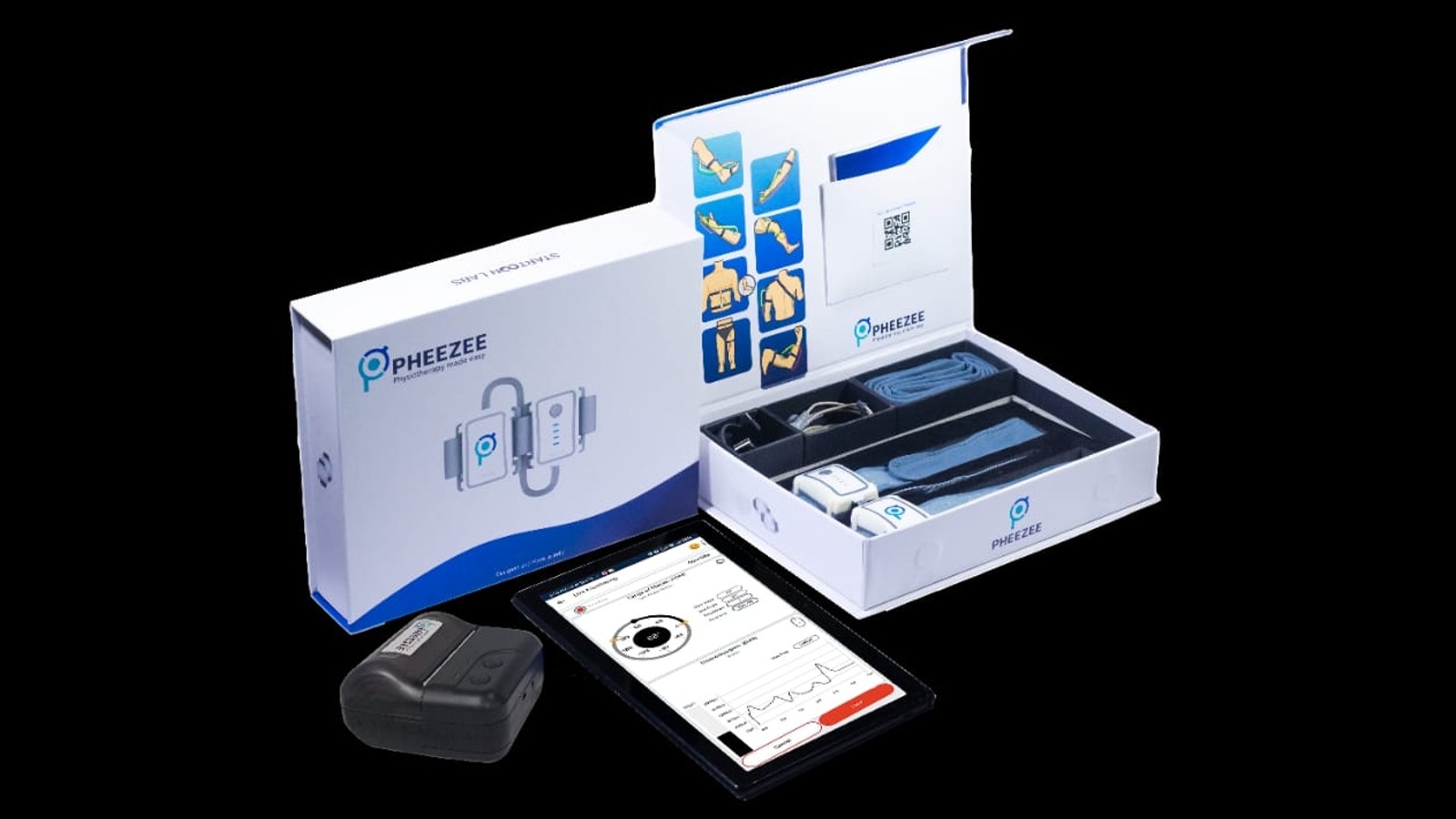
For Susurla, perhaps the biggest advancements being made in health tech are how, with the help of sensors, one can capture the data, and with the help of analytics and artificial intelligence, we can arrive at useful insights that are used in the treatment protocols. But it takes years for cutting-edge health and medical devices to come out of labs and get into the hands of people.
Susurla cites the example of how pulse oximetry to monitor oxygen saturation (SpO2) had been in use in hospitals for decades but reached our homes only during the pandemic. Similarly, to monitor electrocardiograms (ECG), hospitals used to have big table-top machines but now you can continuously monitor a form of ECG on your Apple Watch. “It’s a matter of time when the awareness increases, and the importance of a [tech] is appreciated.”
Susurla is waiting for a similar moment to happen when our joint health is given as much emphasis as our vital organs. “In my body, all the organs are working very well, but if joints are weak, my knees and ankles are not good, I will not be able to stand. Then what is the use of scanning my body and saying my health is good?”
Susurla’s company now has customers across 10 major cities of India and Pheezee is expected to be available outside India soon. Susurla is aware that the gestation period in med-tech is a bit longer. “The opportunity is huge, but patience is needed here.”
But creating a product like the Pheezee in India is rather difficult. Susurla says the expertise to create sophisticated hardware products and the patience needed for such attempts are both missing in India.

Deepak Sen is a tech enthusiast who covers the latest technological innovations, from AI to consumer gadgets. His articles provide readers with a glimpse into the ever-evolving world of technology.

